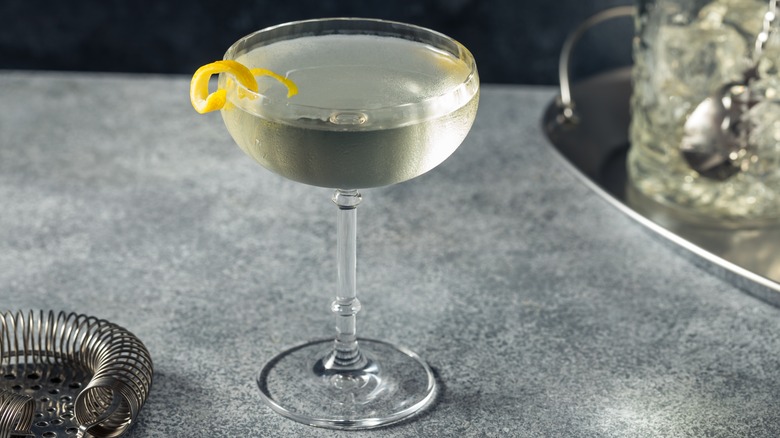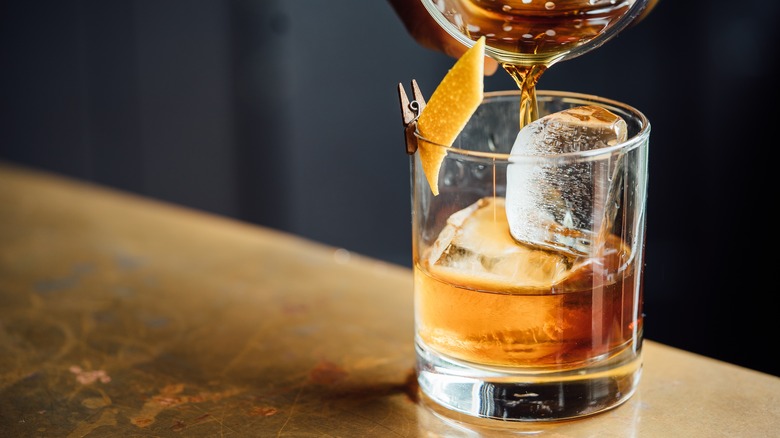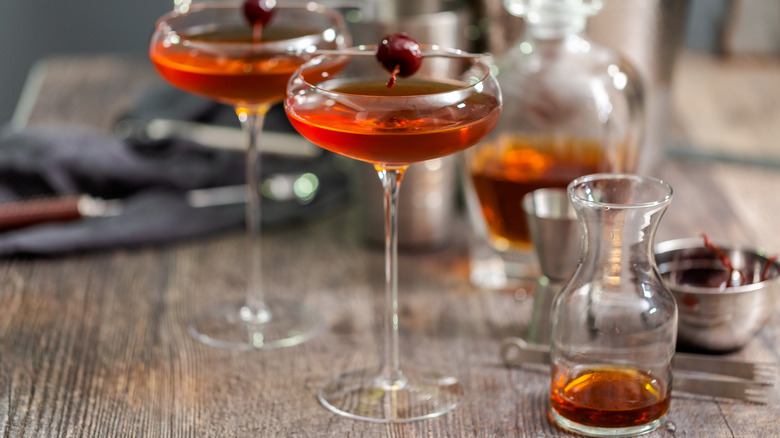What It Means When A Cocktail Is Called Improved Or Perfect
You've probably walked into a happening bar or cocktail lounge before and noticed things like "Improved Whiskey Cocktail" or "Perfect Martini" listed on the menu. And, understandably so, you may have assumed those words were simply cheeky additions to the name of the drink, meant to encourage you to pick that particular poison. Who wouldn't want a cocktail that's been improved, or better yet, perfected?
But these words aren't today's marketing fluff or your local craft cocktail spot's not-so-subtle way to sell a drink. In fact, their usage dates back to when cocktails first began to hit the scene, and they haven't really changed since. When you see a cocktail referred to as "improved" or "perfect," each of those words actually carries a specific meaning, indicating certain ingredients in the drink and how it's concocted. An improved cocktail means that the drink includes ingredients like absinthe or Maraschino liqueur, while the "perfect" label means the drink has been made with equal parts sweet and dry vermouth.
So if you're looking to become well-versed in the world of cocktails, or you just want to know whether to order one of these drinks in the future, you've come to the right place.
The history of improved cocktails
Improved cocktails originate from bartenders taking what was the long-standard cocktail recipe — whiskey, brandy, or genever mixed with sugar and bitters over ice — and adding other ingredients to create a slightly new, subjectively "improved" version.
Think of improved cocktails as the earliest variations of the first-ever cocktails (the ones back in the 1800s that were simply referred to as "Gin Cocktail" or "Brandy Cocktail"). When these "improved" variations first surfaced in 1876, only a handful of cocktails existed, and they were so simple that adding a splash of Maraschino liqueur or absinthe was considered an improvement.
While Maraschino liqueur and absinthe have always been the standard additions to an "improved" cocktail, today the term has loosened a bit — so you may see some exceptions that include other syrups or fresh fruit juice instead, or others that add more ingredients to the mix. But most "improved" cocktails you see will have that same classic base of spirit-sugar-bitters-ice.
The perfect cocktail's origins
The Perfect Martini dates back to 1930, when it appeared in "The Savoy Cocktail Book" as a "Medium Martini" — which makes perfect sense, since it falls right in the middle of a Dry Martini and a Sweet Martini. Somewhere along the way, these versions of Martinis and Manhattans started being referred to as the "perfect," most likely due to their "perfect" proportions of vermouth that made them not too dry, and not too sweet.
Today, bartenders may use other liquors in place of one portion of vermouth, like sherry. And while you'll most often see the word "perfect" in front of a Manhattan or a Martini, there are other "perfect" cocktails out there, like the Perfect Brooklyn (which is a spin on the Manhattan). Some technically "perfect" cocktails even go by other names, like the Affinity Cocktail which is made with Scotch. Regardless, when you see the word "perfect", it's pretty much a guarantee that you're ordering a balanced cocktail.



